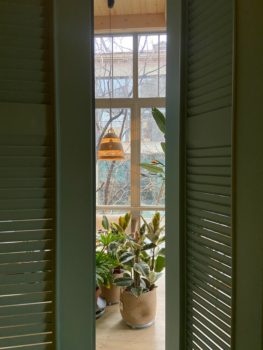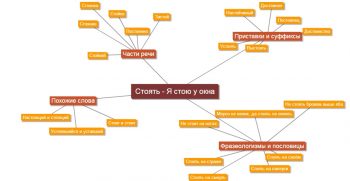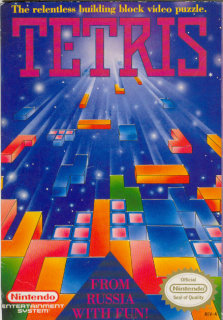Tag Archives: Russian prefixes
Pretty in Prefix. Part II Posted by bota on Sep 2, 2021

In my last blog I left a little exercise on prefixes for you. Today, I will give you the answers and dive into what each word means and how the prefix пре or при changed its original meaning. Превраща́ть Враща́ть means to turn, to spin, or to rotate. Земля́ враща́ется вокру́г со́лнца Here, the prefix…
Pretty in Prefix Posted by bota on Aug 23, 2021

Should I write пре or при? Whether you are a beginner Russian learner or a native speaker, dealing with these two prefixes is a handful. Actually, dealing with all the prefixes in Russian can be overwhelming without some of them sounding almost exactly the same. Is it приле́чь or прелечь на дива́н (to lie down…
The Curious Case of Russian Prefix “Without” Posted by Jenya on Jul 22, 2015
You might have noticed that some nonnative English speakers (myself included) have a way of “inventing” new words. They might say things like “unproper” instead of “improper” or “misagreement” instead of “disagreement,” etc. The abovementioned prefixes all have a similar meaning, a meaning that points to the opposite of the word they are attached to…
When Somebody Tries to Get Your Goat Posted by yelena on Jul 17, 2013
As a good old Russian saying goes, все болезни – от нервов (all illnesses are from stress). Actually, that’s only the first, the most-often quoted, half of the saying. Some say that yoga and meditation help deal with the daily stress. But a healthy dose of Russian can do the same as long as you…
Word-Wide Webs Posted by yelena on Oct 4, 2012

One of the challenges in learning Russian language is expanding your vocabulary. With over сто тридцать тысяч слов (one hundred and thirty thousand words) in the Russian language, figuring out where to start can be a bit frustrating. One option is to narrow it down to, let’s say, the 1000 most commonly used words and memorize…
When You Must Contradict Posted by yelena on Sep 6, 2012
This is in case your child says не хочу (don’t want to) a bit too often. Sometimes even the most cheerful and positive of us встают не с той ноги (get up on the wrong side of a bed). Or maybe it is the right side of the bed, but then something happens during the…
Wordbuilding Tetris Posted by yelena on Apr 13, 2011

Every Russian knows that Russian language is «великий и могучий» [great and powerful]. Nowhere is the “mighty” part as evident as in «словообразование» [word-building], the process of creating multiple derivatives of any given word. Take any Russian «слово» [a word] and play with it like a child would play with his building blocks: «нести»…


